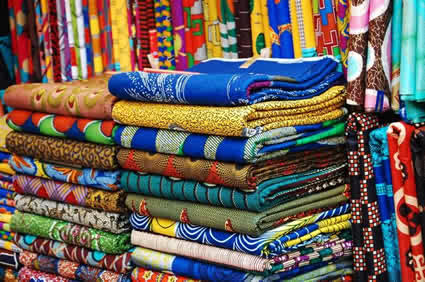
Almost a year ago, the federal government kicked-started the campaign on made-in-Nigeria goods, a move designed to encourage Nigerians to patronise locally-produced goods and services. This is part of the measures being adopted by the government to conserve foreign exchange, stimulate economic growth and create jobs.
The increasing calls from different quarters for Nigerians to start patronising locally made goods and services should be supported by all and sundry who mean well for Nigeria. The calls became imminent after the past free falls of the naira against the dollar, which affected many business concerns in the country.
Recently, Acting President YemiOsinbajo has reaffirmed the Federal Government’s determination to drive the Nigerian economy with locally manufactured products. According to him, the current economic realities indicate that continued dependence on importation is not sustainable.
“As the president said in his 2017 budget speech, we must grow what we eat and we must use what we make; we must patronise made-in-Nigeria products to encourage local production,” Professor Osinbajo said.
Similarly, the Managing Director,InnosonGroup of Companies, Dr Innocent Chukwuma, has advised that adequate investment on technological advancement would pave way for local manufacturers and as well proffer lasting solution to the realisation of the present economic struggle in the country.
He also noted that for any country to become an exporting nation, it has to patronise locally made goods to boost local production and the country’s economy. DrChukwuma noted that the decline in technological advancement at rural communities were the causes of the present economic challenges in the country, stressing the need for local manufacturers to collaborate with government research agencies and universities, in order to actualise the vision of the present administration in the country. This was equally harped by the Minister for Science and Technology, Dr Ogbonnaya Onu, for Nigerians to patronise locally made goods.
Not left out in the campaign for patronage of locally produced goods and services is the Minister of Information and Culture, Alhaji Lai Mohammed, who reiterated that the Federal Government would diversify the nation’s economy through local production of goods and services. He said the promotion of Made-in-Nigeria goods was central to Nigeria’s industrial development, explaining that there would soon be a review of the Bureau of Public Procurement (BPP) Act to promote local goods and services.
Mohammed said: “Boosting industrial development, especially through the local production of goods and services, is a major plank of this policy. Patronising Made-in-Nigeria goods and services is also a key to the success of the policy. In this regard, I can boldly say that Abia State is a pacesetter. Today, the state supplies high-quality military boots to our military and that is just one of such impressive ventures by the state. So, while the state is boosting local production of goods and services, the military is patronising Made-in-Nigeria goods. It’s a symbiotic relationship, and there is no better way to give teeth to the economic diversification policy.
“A major way of encouraging growth and development as well as boosting the nation’s economy is by helping the small businesses to blossom. To achieve this, the Federal Government has taken the bull by the horn by working with the states to address the root problems facing the Micro, Small and Medium Enterprises, MSME. This is being done through Clinics being organized in each state, and this will be followed up with a huge MSME Trade Fair in Abuja later in the year, where grant agencies and investors will be invited to provide funds for outstanding businesses. I am happy to announce that the Clinic was launched in Abia State, specifically in Aba, on the 26th and 27th of January 2017. That’s a befitting tribute to Abia’s trail-blazing efforts at nurturing MSMEs.”
This is apparently not the first time the clamor for made in Nigerian goods have been made by analysts and well-meaning Nigerians. The good news is also the fact that, the president, his vice president and other government officials has continued to declare readiness to patronize local products.
The patronage of Made-in-Nigeria goods was also hailed as a sure means to job creation and economic recovery by President Muhammadu Buhari calling on Nigerians to change their habits by patronizing Made-in-Nigeria goods and services. He said local product of goods and services would not only create jobs for the youths but move Nigeria from an import-based to an export-based economy.
